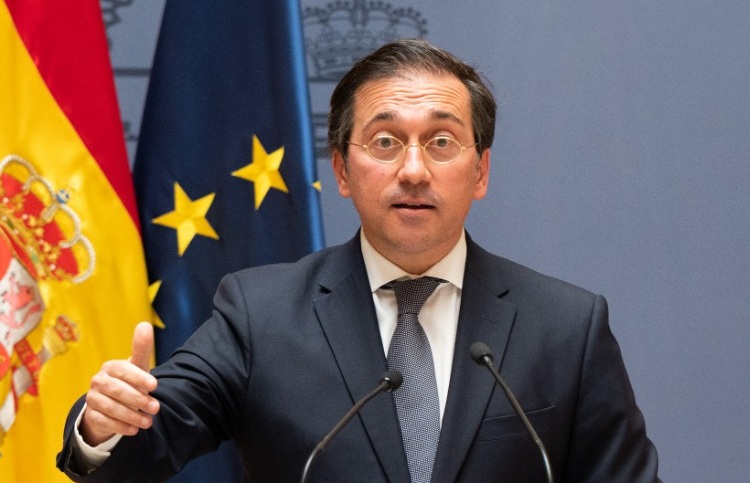Luis Ayllón
The Minister of Foreign Affairs, José Manuel Albares, will travel to Athens tomorrow, Tuesday, and to Nicosia on Wednesday, to try to dispel the misgivings caused in the Greek and Cypriot authorities by the recent summit between Spain and Turkey.
Albares agreed to visit Greece on 19 November, after a telephone conversation with his Greek counterpart, Nikos Dendias, and after the Greek authorities summoned the Spanish ambassador, Enrique Viguera, to ask for clarification of what had been discussed at the Spanish-Turkish summit held two days earlier.
Greece was very concerned, especially with regard to defence cooperation between Spain and Turkey, which was mentioned in several points of the agreements signed at the summit. Dendias made this clear to Albares, with whom he ended up arranging the Spanish minister’s visit to Athens on Tuesday.
The main aim of Albares’ visit to Athens is to reassure the Greeks about Spain’s relations with Turkey, something that the State Secretary for the European Union, Juan González-Barba, had already made known to the Greek Alternate Minister for Foreign Affairs, Meltiadis Varvitsiotis, with whom he coincided at an event in Seville on 23 November.
The same objective of resolving misgivings is what will lead the Foreign Minister to travel to Cyprus on Wednesday to meet his Cypriot colleague, Nikos Christodoulides, despite the fact that the two had already had the opportunity to meet last Thursday, in Madrid, on the occasion of the working visit made to Spain by the President of that country, Nikos Anastasiadis.
Greeks and Cypriots have a tense neighbourly relationship with Turkey, most recently over gas exploration in the Eastern Mediterranean, and consider it a kind of betrayal that Spain, a partner country in the European Union, has such close military ties with a government like the one in Ankara, which they consider anything but democratic.
The Greeks would like Spain to show them firmer support, as other European countries have done, notably France, to which the government of the conservative Kyriakos Mitsotakis awarded the construction of three frigates in September, after having excluded the proposal of Spain’s Navantia from the tender.
Greece’s misgivings about Spain were heightened after Turkish President Recep Tayip Erdogan’s statements at a joint press conference with Prime Minister Pedro Sánchez after the summit, to the effect that Turkey wants to acquire a second aircraft carrier and a series of submarines for its navy, in collaboration with Navantia, which is already helping the Turks build a smaller aircraft carrier.
The fear of Greece and Cyprus is that Erdogan’s words are a response to Spain and Turkey’s intention to sign a Defence Treaty, something that Albares will endeavour to deny, according to diplomatic sources, because this is not the intention of Sánchez’s government.
The foreign minister is likely to stress to his Greek and Cypriot colleagues that Spain’s long-standing relationship with Turkey could be used by Greece and Cyprus to send messages to the Turks through Spanish channels, which could be especially useful for Cypriots who have no diplomatic relations with Ankara as a result of Turkey’s occupation of part of the island.
The Spanish government is faced with the need to maintain good relations with Greece and Cyprus, without losing its long-standing relationship with Turkey. This relationship with the Turkish authorities goes beyond the famous Alliance of Civilisations promoted during José Luis Rodríguez Zapatero’s government together with Erdogan, and takes the form of a significant Spanish economic presence in Turkey.
Within this presence, the recent takeover bid launched by BBVA for the 50.15% it does not control in its Turkish subsidiary, Garanti -Turkey’s leading private bank- for a maximum price of 2.249 billion euros, with the aim of acquiring 100% of the capital, stands out.
Given the importance of Spain’s economic interests in Turkey, the PP’s attitude since the Spanish-Turkish summit has not been viewed favourably by the executive branch. Recently, the president of the PP, Pablo Casado, travelled to Greece and Cyprus, where he expressed his party’s commitment to the territorial integrity of those countries, as if he wanted to question the position of the government, which has also defended that integrity.






